Second Congress of Young Scientists: Students Are Ready to Implement Breakthrough Projects
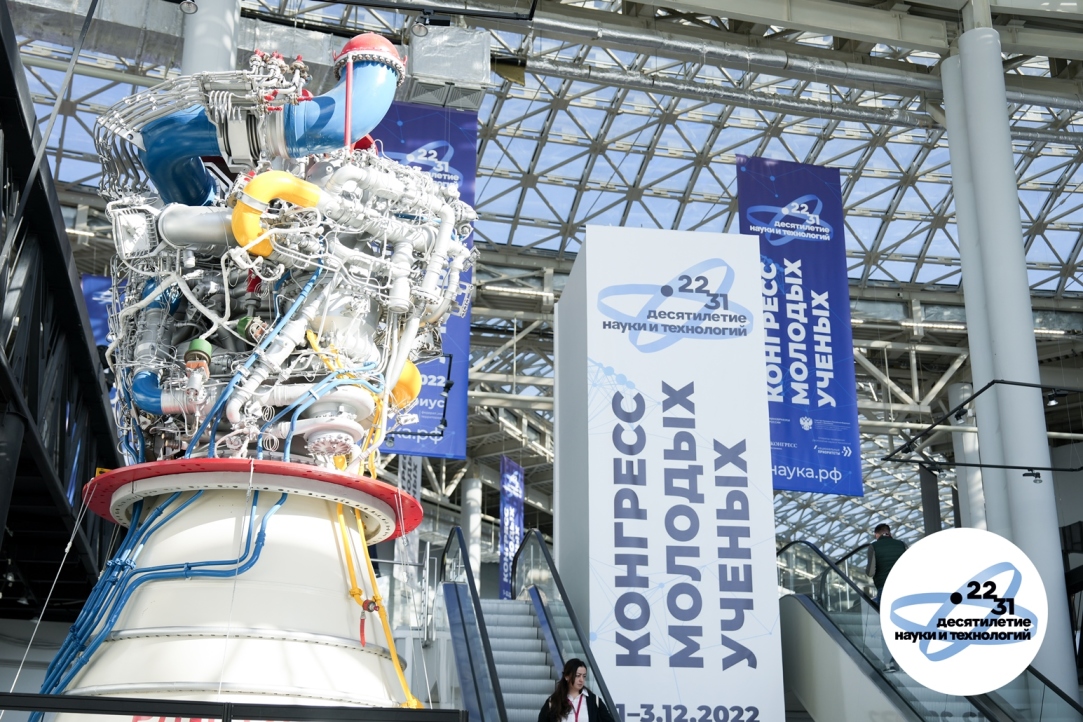
The 2nd Congress of Young Scientists was held at the Sirius Park of Science and Art in Sochi. HSE University representatives took an active part in it, working at various venues where a wide range of topics were discussed—from university development to machine learning and scientific cinema.
The 2nd Congress of Young Scientists is a key event of the Decade of Science and Technology. Over three days, more than 3,000 participants from 77 regions of Russia and 40 countries took part in it, and over 155 sessions were held. President of the Russian Federation Vladimir Putin, Minister of Science and Higher Education of the Russian Federation Valery Falkov, and others attended the event.
On the first day of the congress, a round table on ‘The Integration of Scientific and Educational Organisations of New Regions into the Russian Scientific and Educational Space’ was held. HSE University Vice President Irina Karelina dedicated her speech to new opportunities for universities. There are currently about 500 state universities in the Russian Federation, about 5% of which are new. She noted that Russia has accumulated ‘phenomenal’ experience in university development.
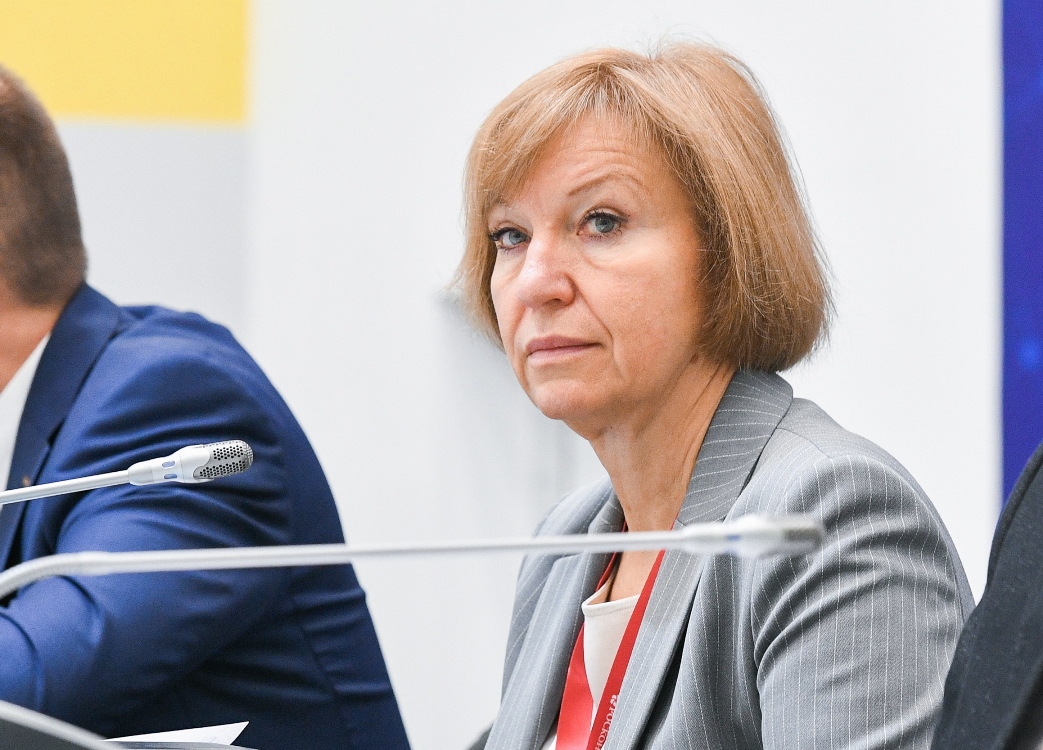
The creation of collaborations is a timely trend. It includes establishing scientific and educational centres, mirror laboratories, and joint master's and doctoral programmes. Summer subject-specific schools and various internships have become widespread.
Engineering Bureaus at Universities
HSE Vice Rector Dmitry Zemtsov moderated the session ‘Future Staff: Engineering Bureaus as Training Sites for Young Engineers’. He said that the Ministry of Finance and the Ministry of Education and Science are launching a system of support measures for engineering bureaus sited at Russian leading universities. The goal is to attract talented young people to research and development.
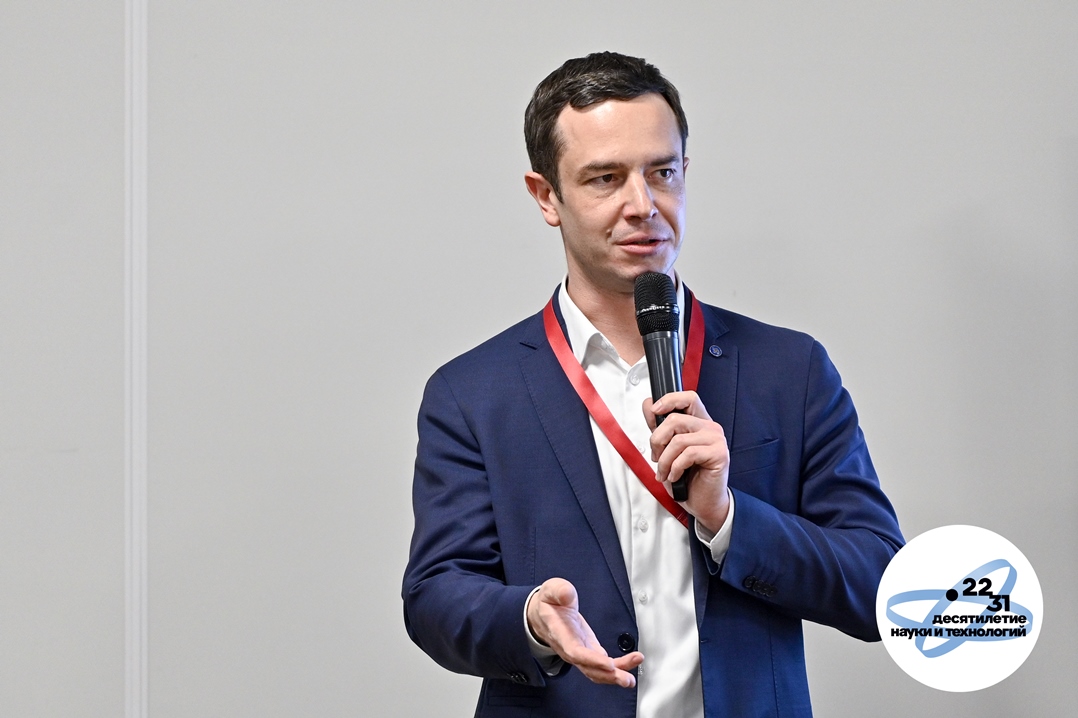
‘There are about a hundred universities in Russia that are ready to generate new technologies and new knowledge, and there are students who are ready to implement breakthrough projects. And if you count working engineering bureaus, there are no more than 50 of them, while every strong university can launch more than one student engineering bureau,’ said Zemtsov. It is vital to make sure that students can solve real problems for technology companies during their studies.
Boris Chernyshov, Deputy Chairman of the State Duma of the Russian Federation, Associate Professor at the HSE Faculty of Social Sciences, took part in the session ‘Development of the Personnel Management Programme in Science and Education as a Tool for Dealing with Main Social Challenges.’ Changes in the world order create a demand for new staff and for people who can manage large systems, stressed Chernyshov. Everyone must feel that they are in demand: ‘We really want talented, creative people who generate new ideas to join the management system.’
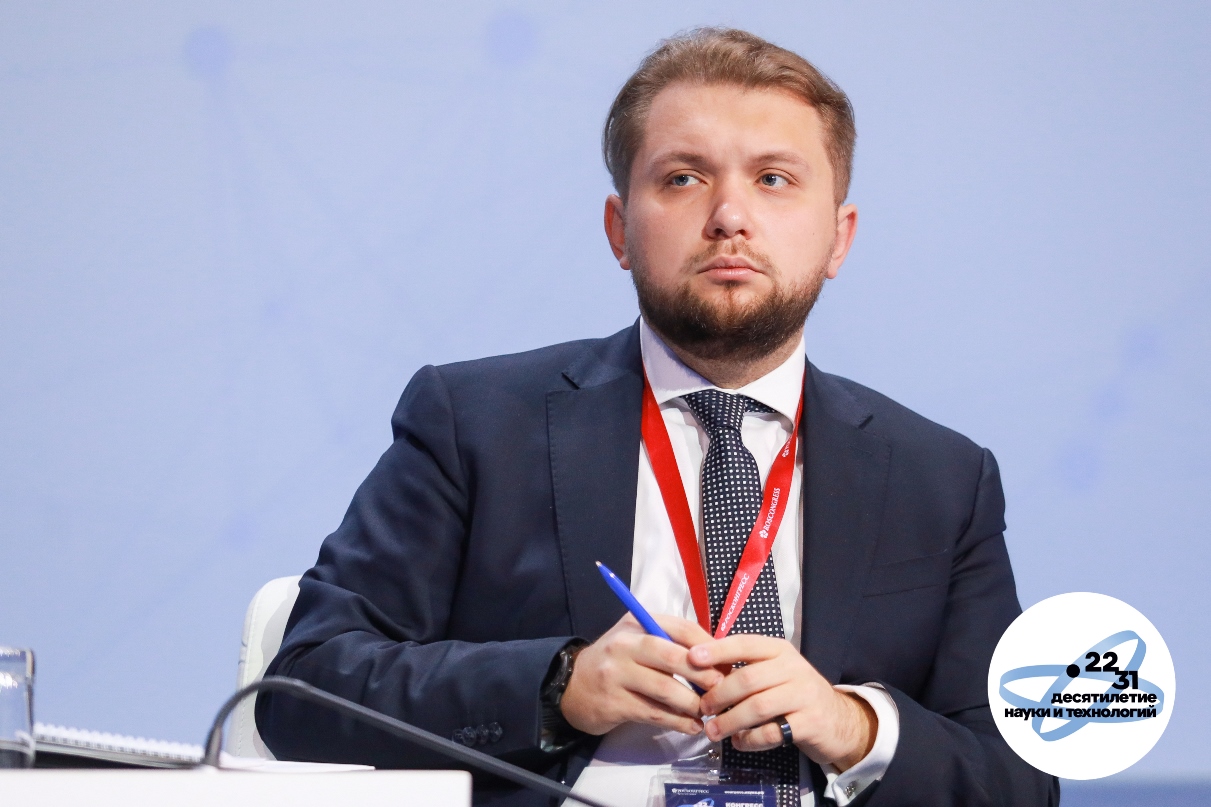
Focusing on Opportunities, Not Fears
Professor Alexander Sokolov, Deputy Director of the Institute for Statistical Studies and Economics of Knowledge and Director of the HSE Foresight Centre, spoke about changes in the forecasting system at the session ‘Designing the Future’. The work of the Foresight Centre is to gather a team of stakeholders—key experts and key users in the required field, as well as people who make decisions. They choose a mutually acceptable version of the future from several possible options and develop a system of measures to achieve it.
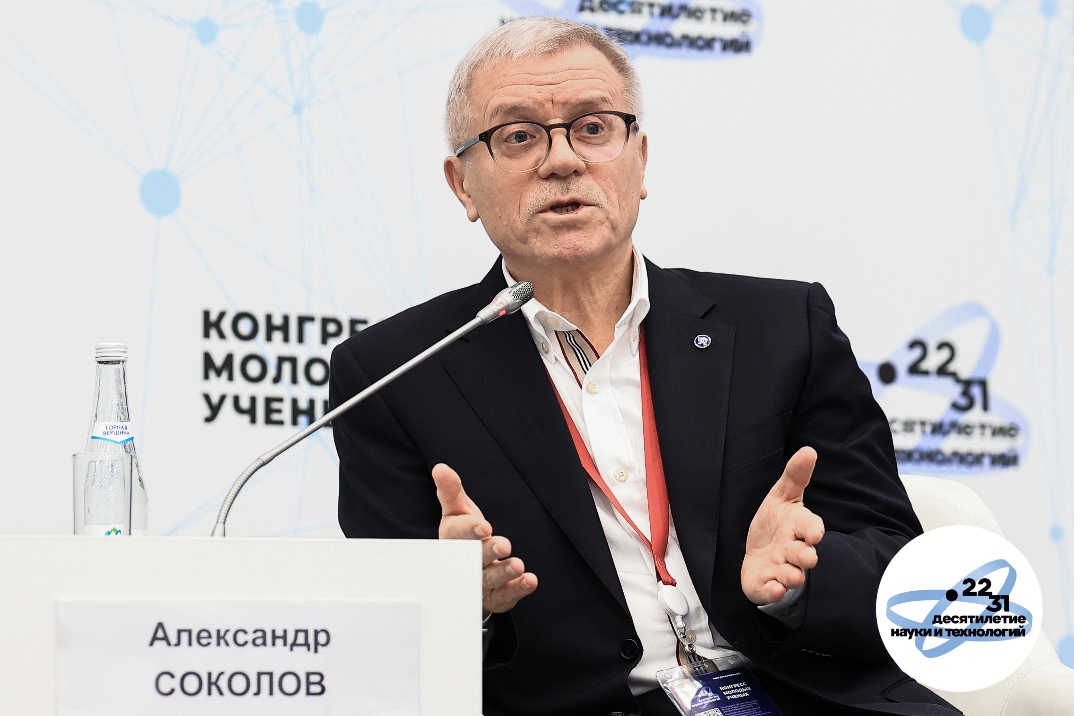
Today, the situation is becoming much more unpredictable and turbulent. It is important both to choose measures that will reduce this uncertainty and to be ready to respond to different options. ‘To do this, we need to attract adequate experts and to work with big data,’ believes Sokolov. We should also take into account that various shocks may occur. To do this, researchers collect a database of weak signals and wild card events, then try to describe and analyse them. There are models for working with such indicators. In order for forecasts to really work, it is very important that decision-makers are actively involved in the process at the earliest stages, stressed Alexander Sokolov.
Interaction with the Brain: A Fascinating Field
Neurotechnologies are at the forefront of science, provoking increasing interest among young researchers. The session ‘Neurotechnologies: How to Correct and Enhance the Brain’ was devoted to the development of this field. The participants discussed problems related to the development of the latest interdisciplinary methods that combine the achievements of physics, biology, medicine and other sciences to treat patients with complex diseases.
Director of the Federal Center of Brain Research and Neurotechnologies Vsevolod Belousov stressed that neurotechnologies are brought into everyday life through medicine. The centre plans to develop technologies that combine physics and materials science with medical technologies.
Alexey Ossadtchi, Director of the Centre for Bioelectric Interfaces at the HSE Institute for Cognitive Neuroscience, says that interfaces that interpret the brain's responses and control limbs have already become a reality. However, in his opinion, ‘the most interesting thing is interacting with the brain, talking to it, and figuring out how to deliver processed information.’ The expert believes that this will allow scientists to adjust the brain to a certain mode, correct pathological conditions, and identify possible manifestations of conditions such as epileptic seizures.
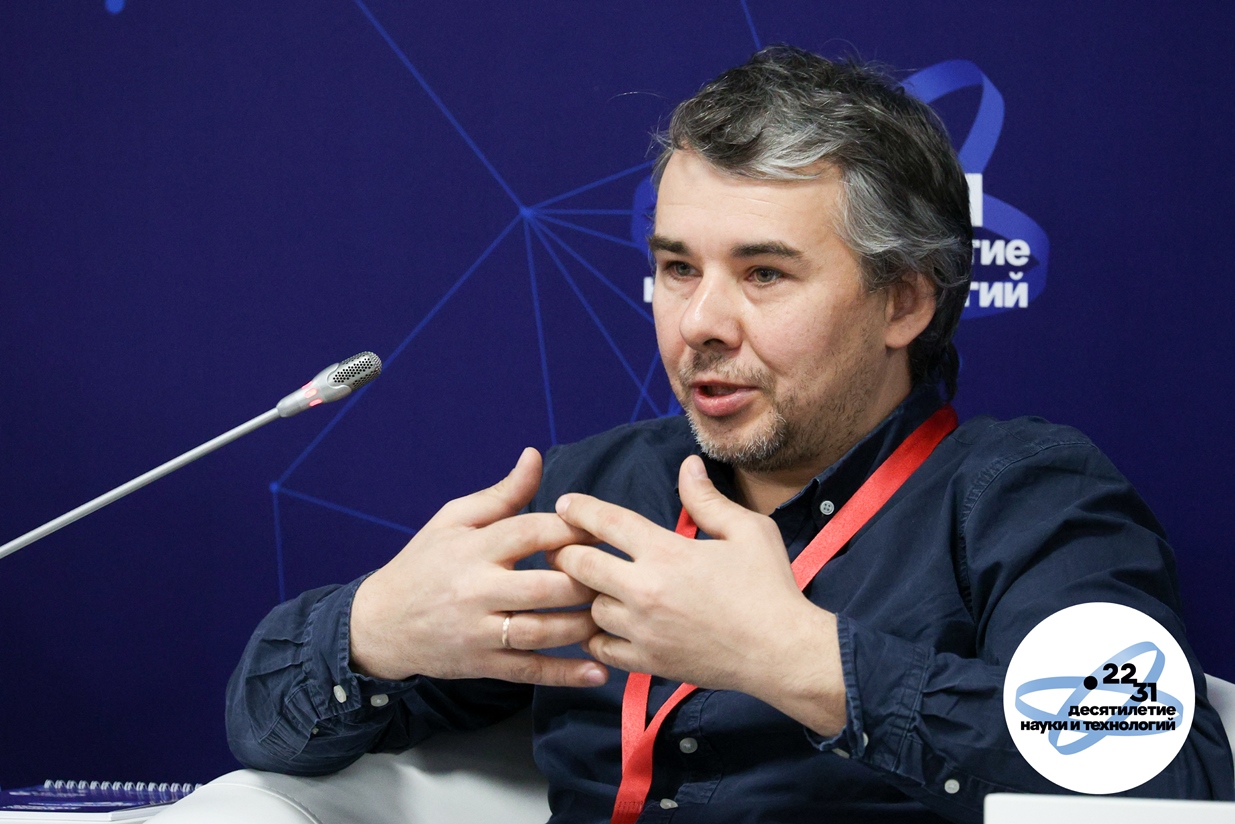
Denis Derkach moderated the discussion section ‘Machine Learning to Solve the Mysteries of the Universe’, in which he and representatives of the academic community discussed the role of new data analysis methods in the development of fundamental sciences.
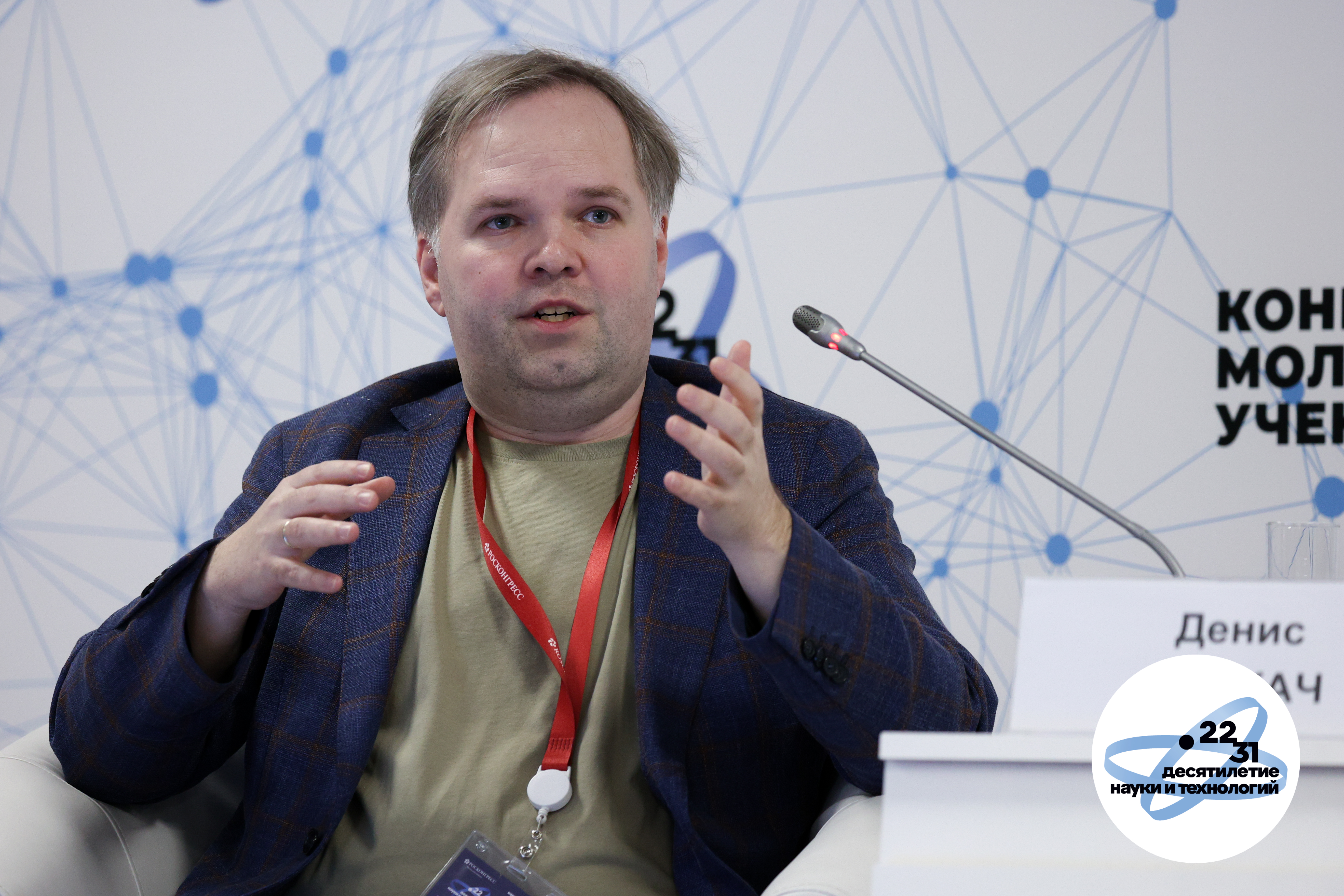
The participants of the discussion came to the conclusion that in the case of fundamental sciences, artificial intelligence acts as a research assistant. It allows scientists to significantly reduce the time taken to collect the data necessary to discover new laws of the universe. He emphasised that the creation of a domestic element base for artificial intelligence will greatly simplify the creation of new Mega Science projects such as the NICA accelerator (JINR, Dubna) and the Super charm-tau Factory (Sarov), as this type of research can serve as a good platform for the development of AI approaches in the near future.
Maria Nagernyak, Deputy Vice Rector, Director of the Head Office of the Human Capital Multidisciplinary Research Center, spoke at the discussion platform ‘The Role of Young Scientists in the Implementation of Programmes for the Creation and Development of World-class Research Centres that Perform Research and Development on the Priorities of Scientific and Technological Development’.

She highlighted the introduction of new formats for attracting young researchers to social sciences and humanities. In addition, the Human Capital Multidisciplinary Research Center held the presentation ‘Digital Technologies in Modern Anthropology’.
The following researchers also took part in the event: Director of the Centre for Student Academic Development Andrey Kozhanov, expert of the Faculty of Creative Industries Oleg Ivanov, Director of the Centre for Statistics and Monitoring of S&T and Innovation Ekaterina Streltsova, Head of the Laboratory of Methods for Big Data Analysis Denis Derkach, Director of the Centre for Science, Technology, Innovation and Information Policy Mikhail Gershman, Associate Professor at the Graduate School of Business Dmitrii Knatko, Head of HSE AI Centre Alexey Masyutin, Head of the Department for Economics of Innovation in Agriculture at the Institute for Agrarian Studies Nadezhda Orlova, Head of the School of Philosophy and Cultural Studies Anastasia Ugleva, and other HSE researchers and students.

